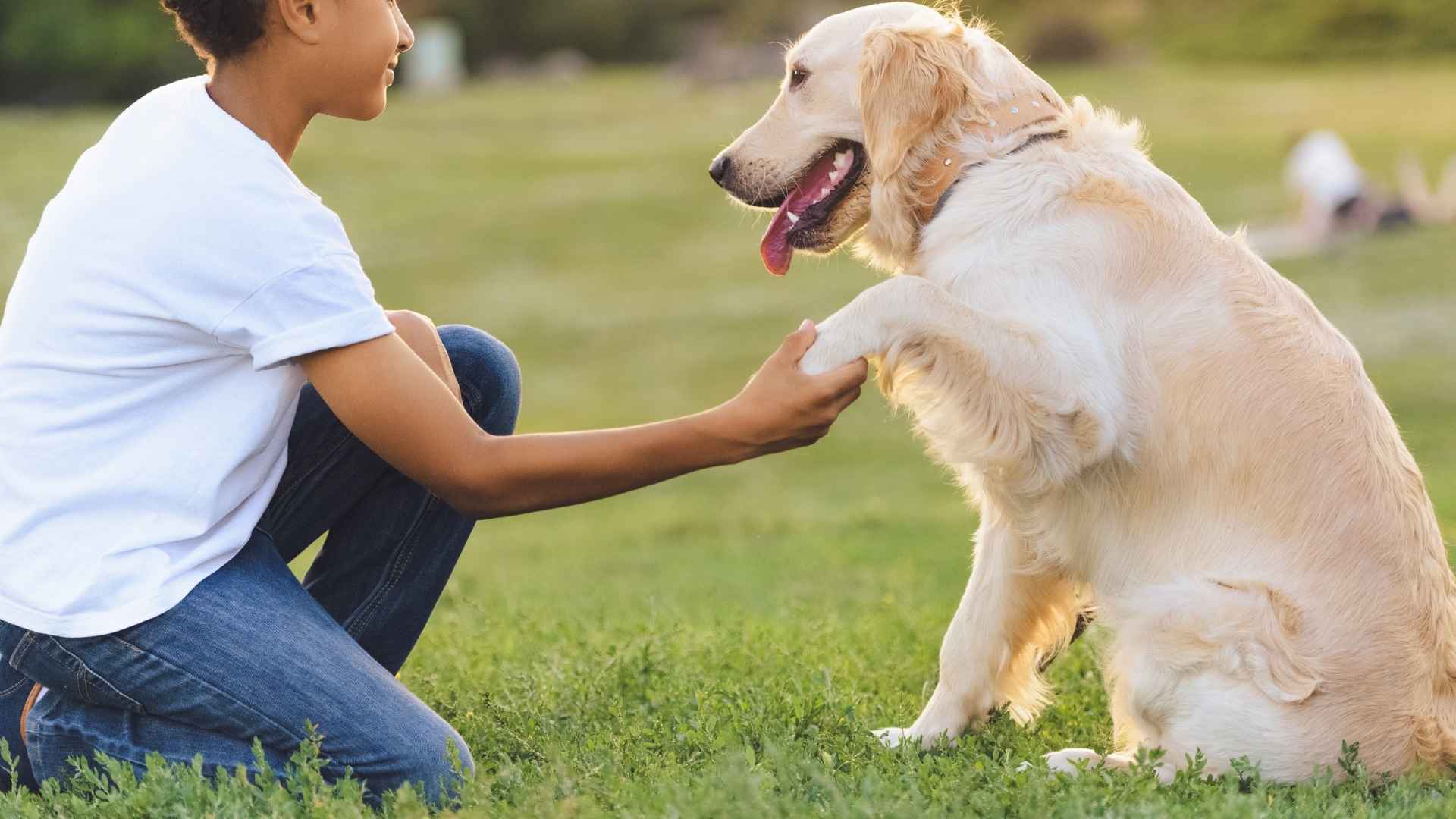The bond between a child and a dog can be life-changing, but for children with autism, it can be truly transformative. Autism support animals, especially dogs, are more than loving pets; they are steady sources of emotional comfort, confidence, and calm.
These animals help children manage overwhelming feelings, regulate their senses, and even build stronger social connections. In fact, a study by the National Institutes of Health found that 94% of autistic children who had a dog formed a special bond with their pet, highlighting the powerful emotional connection these animals offer.
Whether through therapy or trained service, dogs bring security, structure, and a sense of joy to children navigating autism spectrum disorder.
Key Benefits of Dogs for Autistic Children:
Reduced anxiety & sensory overload
Improved communication & social interaction
Sense of responsibility and emotional grounding
Enhanced routine, safety, and emotional security
In this article, we’ll guide you through the best dogs for autism support and how they transform lives.
Dog Breeds for Autism Support
1. Golden Retriever
Key Traits:
Calm, loyal, and emotionally intuitive
Minimal barking, ideal for sound-sensitive children
Easily trainable and deeply bonded to family
According to the AKC, Golden Retrievers are widely loved for their friendliness, loyalty, and sensitivity. These gentle giants are known for their nurturing presence, making them a top choice for children with autism. Their ability to remain calm and provide emotional grounding is especially helpful during meltdowns or overstimulating moments.
Because they’re eager to please, Golden Retrievers excel in learning tasks that support their autistic companions, like interrupting repetitive behaviors or offering pressure therapy. Their strong memory and focus make them reliable service partners in structured routines.
Goldens are naturally sociable, offering a soft introduction to the world of interaction. For children who struggle with making connections, the inviting energy of a Golden Retriever can ease fears and create opportunities for shared moments and growth.
Low barking levels also make Goldens a good fit for those with auditory sensitivities. Their only real demand is regular brushing and some awareness of potential joint issues as they age.
2. Saint Bernard
Key Traits:
Provides firm, calming physical presence
Naturally gentle and slow-moving
Needs firm handling and space to thrive
Saint Bernards are large, steady dogs with calm temperaments. Their size makes them ideal for deep pressure therapy, offering physical comfort during stress or sensory overload.
They are naturally quiet and composed, making them suitable for children who prefer minimal stimulation. Their gentle demeanor helps create a predictable and safe environment.
While affectionate and loyal, Saint Bernards can be stubborn. Early training and clear boundaries are important. They respond best to firm but kind leadership.
These dogs need room to move and a food budget to match their size. For families prepared to meet their needs, Saint Bernards offer unmatched grounding and emotional support.
3. Labradoodle

Key Traits:
Allergy-friendly coat with minimal shedding
High emotional intelligence and calm demeanor
Excels in communication and sensory support
Labradoodles combine the intelligence of Poodles with the friendliness of Labradors, making them a strong match for children with autism. Their allergy-friendly coats are a major plus for families dealing with respiratory sensitivities or sensory aversions to pet hair.
Their intuitive nature allows them to respond gently to emotional shifts. Labradoodles quickly detect distress and offer quiet comfort, whether by leaning in, resting near the child, or staying still during meltdowns. Their behavior is predictable and non-threatening, which helps build trust.
Labradoodles support communication development, especially for non-verbal children, through consistent, non-verbal interactions. Kids often express feelings more freely with a dog that doesn’t demand language. These moments can help bridge emotional gaps and build self-expression over time.
They require regular grooming and clear guidance, but when well-trained, Labradoodles thrive in therapy, school, and home settings. Their adaptability, calm energy, and affection make them one of the most versatile autism support breeds available.
4. German Shepherd
Key Traits:
Task-driven and highly focused
Protective yet gentle with children
Strong emotional and sensory awareness
German Shepherds are one of the most intelligent working breeds. Their loyalty, precision, and trainability make them ideal service dogs for children on the autism spectrum. They excel at learning complex commands and staying focused in distracting environments.
This breed’s protective instinct creates a strong sense of safety. German Shepherds are naturally alert and responsive, often positioning themselves between their handler and unfamiliar surroundings, a comfort to children with anxiety or sensory sensitivities.
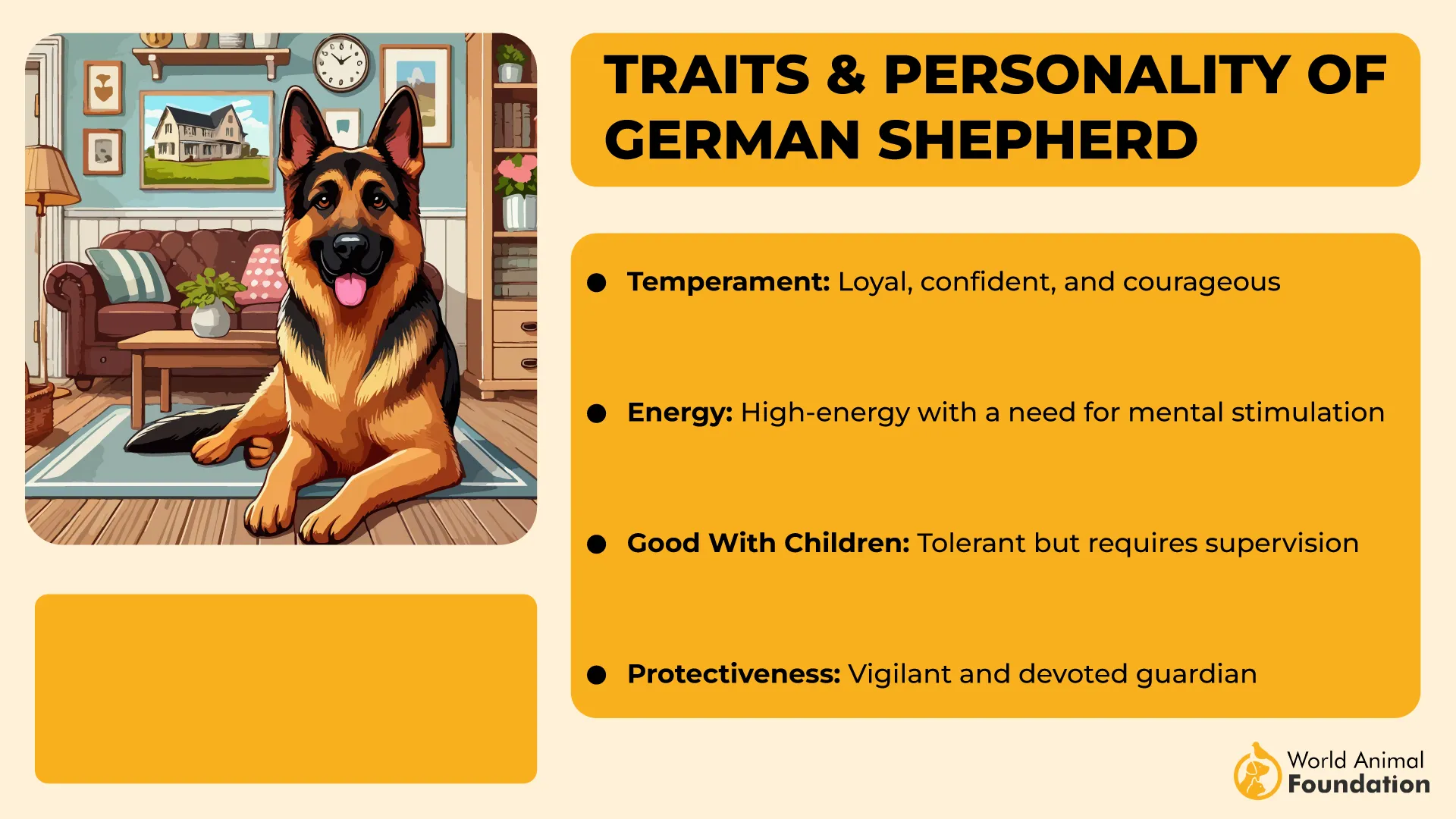
With the right training, German Shepherds can support a wide range of needs: from performing deep pressure therapy to retrieving items or guiding their handler through overstimulating spaces. Their ability to stay calm and in tune with emotional cues makes them dependable therapy partners.
They do need regular physical activity, and structured service work often satisfies that need. With proper training and daily engagement, German Shepherds become loyal companions that help autistic children build independence, emotional stability, and confidence in daily life.
5. Bernese Mountain Dog
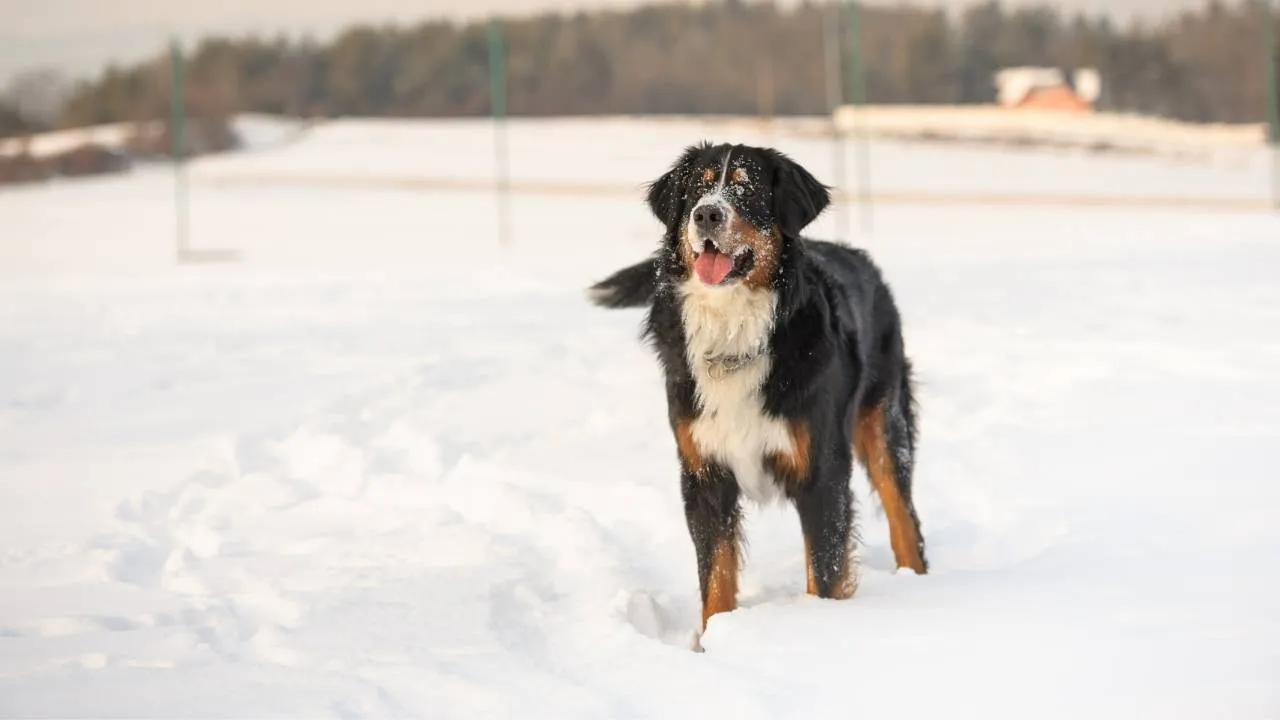
Key Traits:
Calm, affectionate, and tolerant
Provides deep pressure for sensory relief
Loyal and eager to please
Bernese Mountain Dogs are gentle giants with a naturally calm presence. Their affectionate temperament makes them emotionally supportive companions for children with autism, especially those who are overwhelmed by fast or unpredictable energy.
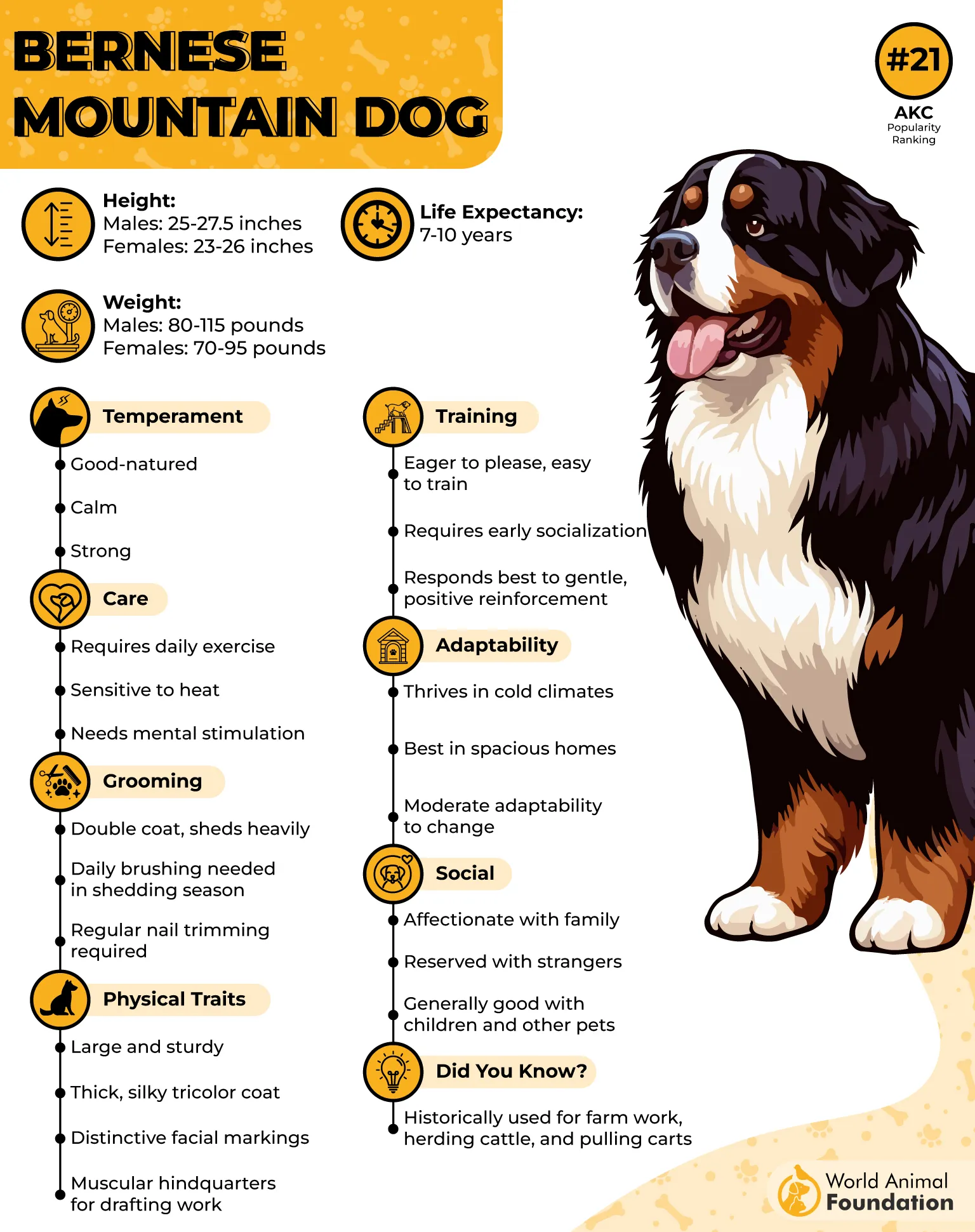
They’re highly sensitive to emotional changes, often responding with quiet closeness or soft physical contact. This makes them effective at providing grounding support during anxious or overstimulating moments.
Their large size is a practical benefit for children needing sensory regulation. By leaning in or lying beside a child, they offer deep pressure therapy that can reduce sensory discomfort and restore balance.
Though they shed heavily and may drool, their loyalty, patience, and warmth often outweigh these factors. For families seeking a dog that’s both intelligent and nurturing, the Bernese Mountain Dog delivers consistent comfort and emotional connection.
6. Samoyed
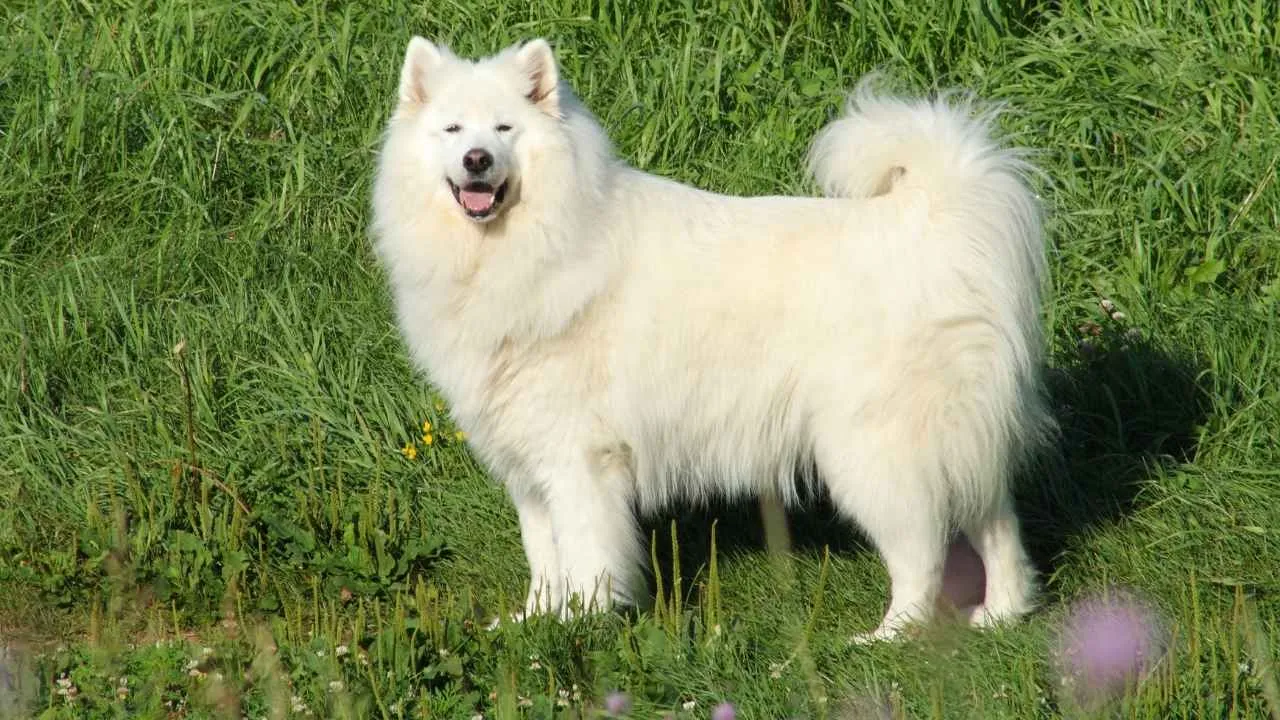
Key Traits:
Friendly, expressive, and eager to engage
Large enough for deep pressure and mobility support
High energy with a strong need for exercise
Samoyeds are known for their bright, smiling expressions, and their personalities match the look. These dogs are affectionate, intelligent, and quick to bond, making them strong contenders for autism support roles in active households.
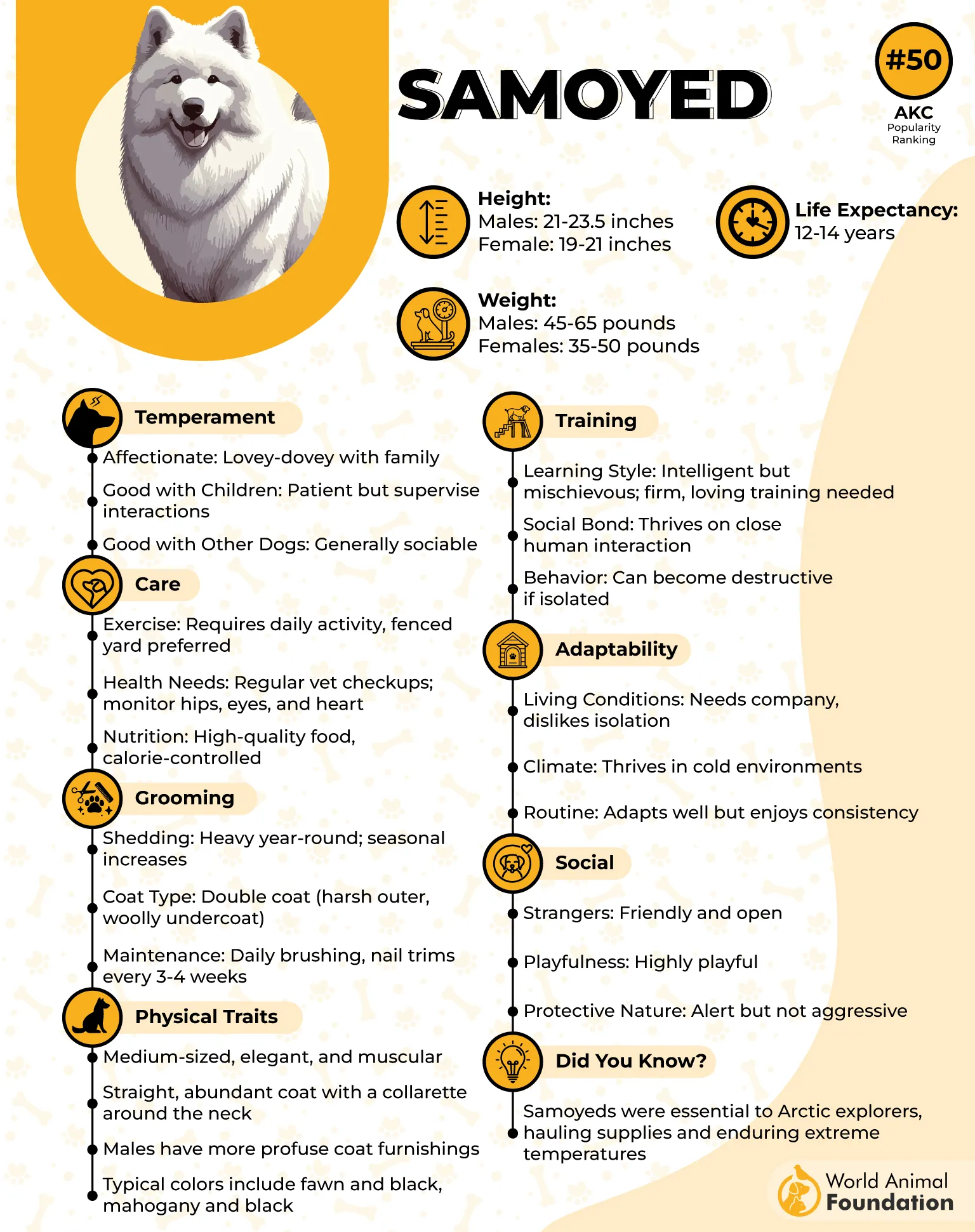
Their size provides practical benefits like balance assistance and deep pressure therapy. For children or adults who need physical grounding, Samoyeds offer a steady presence and comforting touch during moments of stress or sensory overload.
They’re also highly trainable, excelling in routines and task-based activities. Their adaptability makes them well-suited for structured therapy, where consistency is essential to the child’s growth and development.
However, Samoyeds come with high energy needs. They require daily physical activity and mental engagement. Their thick coat sheds heavily, and they can be vocal if understimulated. For families prepared for this commitment, Samoyeds offer playful support, emotional connection, and a vibrant presence that encourages daily engagement and structure.
7. Newfoundland
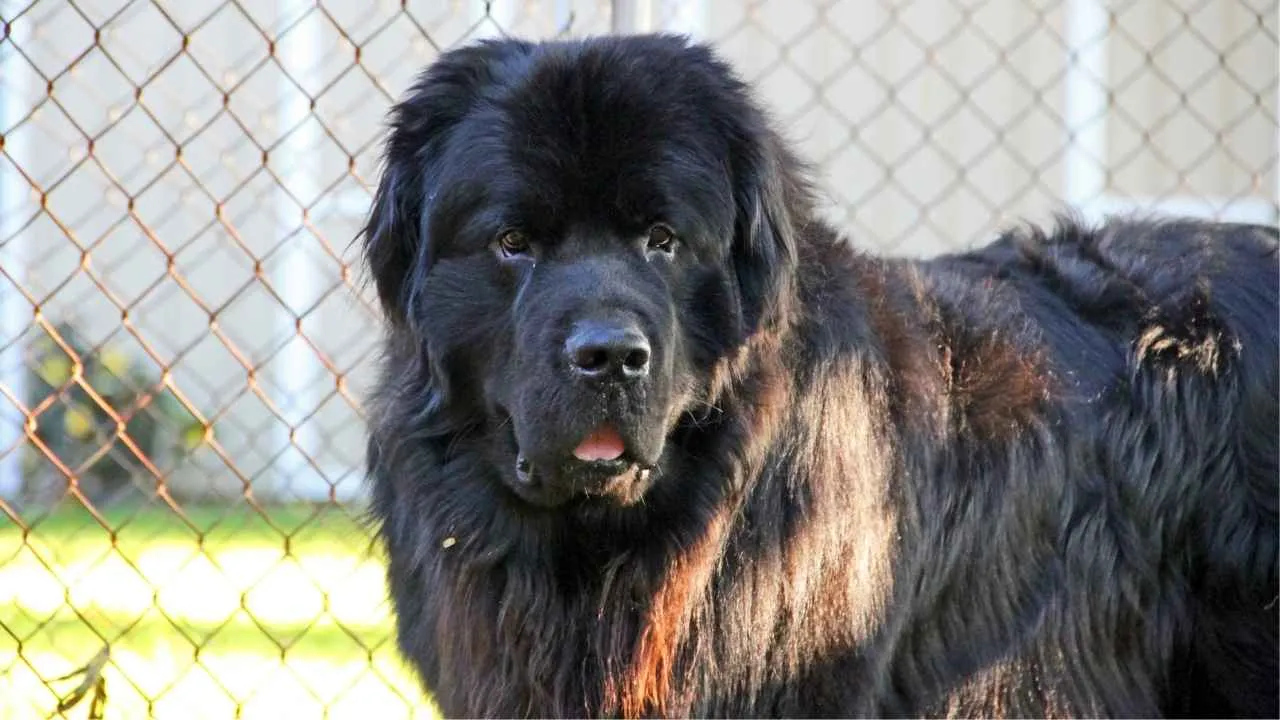
Key Traits:
Exceptionally calm and nurturing
Low energy, ideal for quieter routines
Large size suited for deep pressure therapy
Newfoundlands are gentle giants with a long-standing reputation as natural caregivers. Often called “nanny dogs,” they are patient, emotionally attuned, and deeply affectionate, traits that make them excellent companions for autistic children.
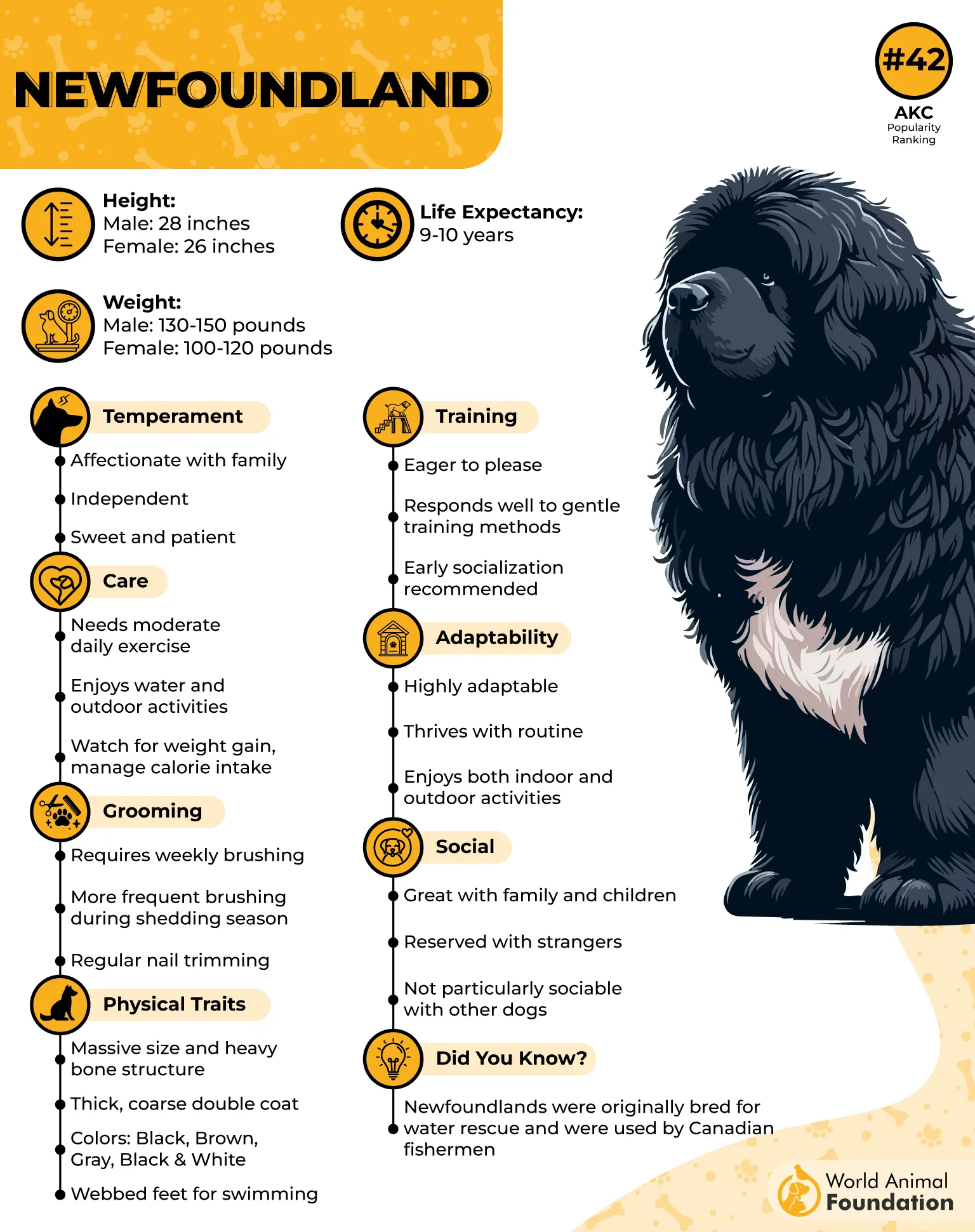
Their size offers practical benefits. Weighing up to 150 pounds, Newfoundlands can provide grounding through deep pressure therapy, helping regulate sensory overload in moments of distress. They’re also physically steady, adding mobility support where needed.
This breed is surprisingly low-energy. A short daily walk or light playtime is usually enough to meet their needs, making them a good match for families who prefer a calm and predictable environment.
However, families must be prepared for heavy shedding, drooling, and the reality of a shorter lifespan (8–10 years). Joint issues are also common due to their build. But for those ready to care for their needs, Newfoundlands offer unmatched emotional security and gentle, lasting companionship.
8. Beagle

Key Traits:
Small, playful, and non-intimidating
Energetic and socially engaging
Can be vocal and harder to train
Beagles are a compact and lively breed that can make great companions for some children with autism, particularly those with mild sensory needs and a playful disposition. Their manageable size (typically under 30 pounds) makes them approachable and ideal for families seeking a smaller, friendly dog.
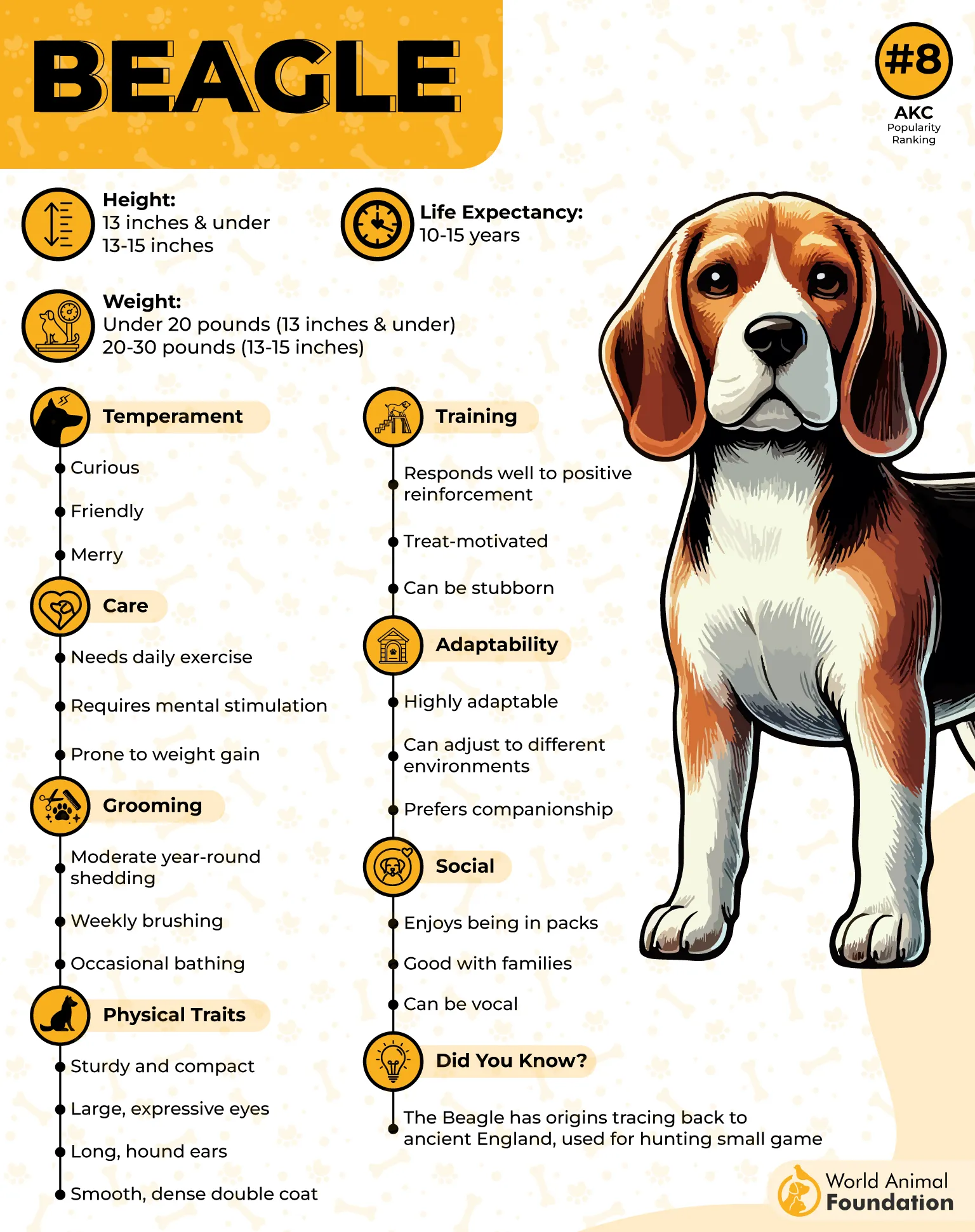
They are naturally curious and love to explore. Beagles thrive on play and physical activity, often encouraging children to be more engaged and active. Their presence can promote movement and spark interactive routines that support emotional development and sensory stimulation.
While affectionate and loyal, Beagles are known for their independence. They can be stubborn during training and may not respond as predictably as more service-oriented breeds. They also bark frequently, which could be overstimulating for children with sound sensitivities.
For families seeking a spirited, social, and affectionate smaller breed, and who are prepared for active play and consistent training, the Beagle may be the perfect fit.
9. Staffordshire Bull Terrier
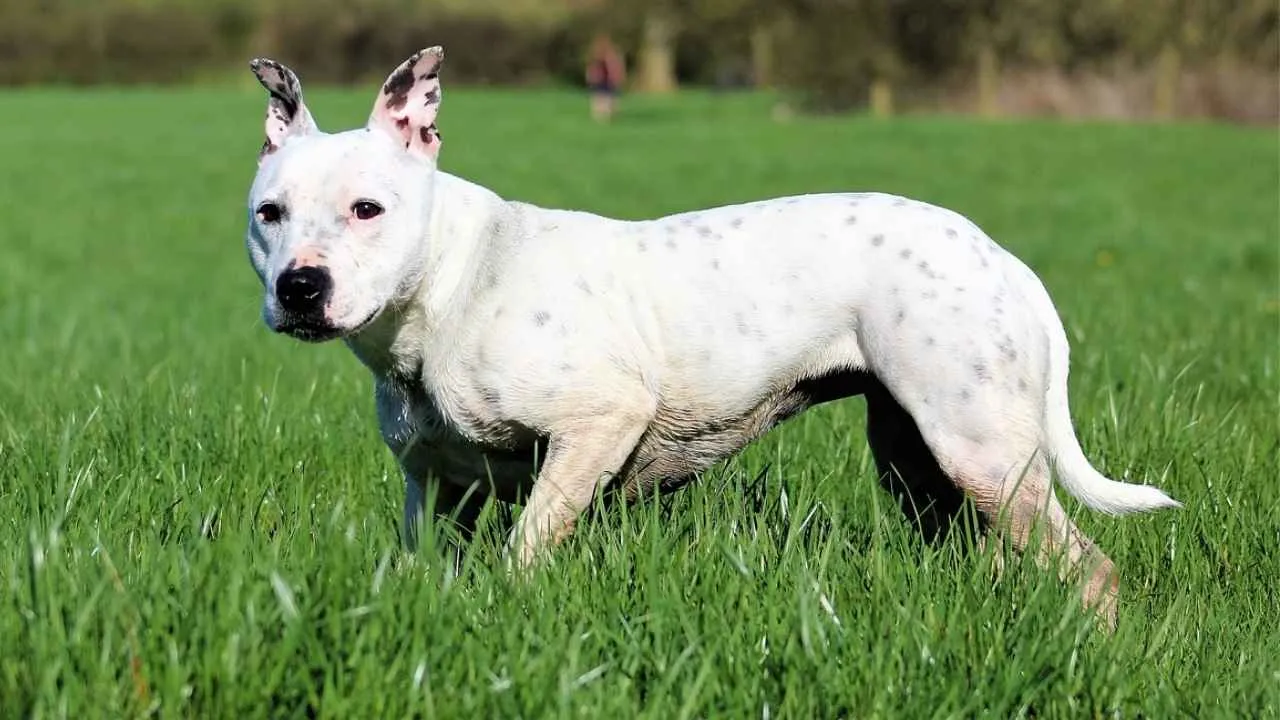
Key Traits:
Deeply loyal and emotionally intuitive
Referred to as “nanny dogs” for their child-friendly nature
Misunderstood reputation, but strong temperament scores
Staffordshire Bull Terriers may appear tough, but they are among the most affectionate and child-oriented breeds when raised with love and structure. Known as “nanny dogs,” their natural protectiveness and sensitivity make them excellent companions for children with autism who need calm support during moments of distress.
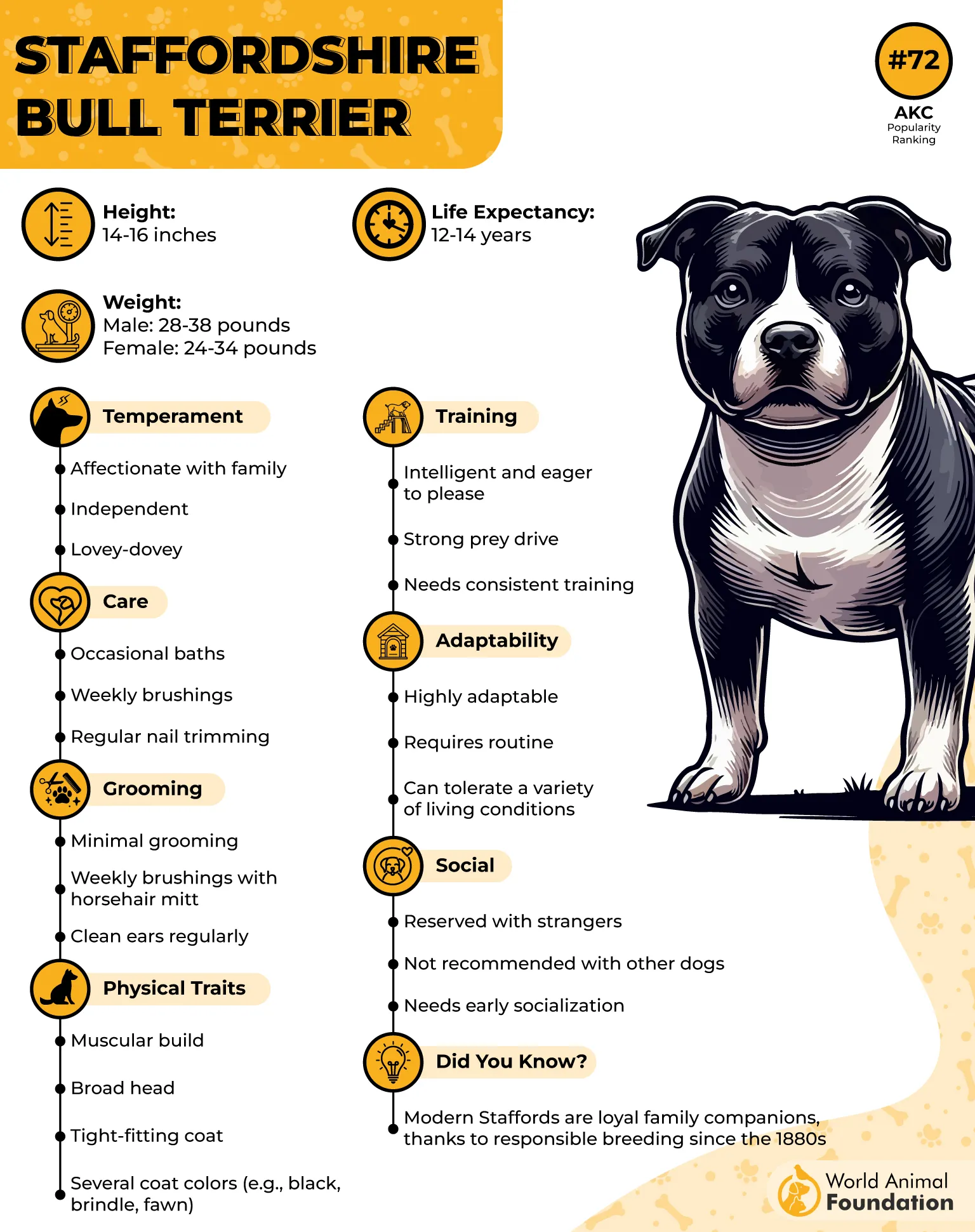
These dogs are emotionally intelligent. Many handlers report that well-trained Staffies instinctively comfort children showing signs of agitation, anxiety, or withdrawal, often lying close or engaging with playful nudges to lift their mood.
Despite misconceptions, Staffordshire Bull Terriers have some of the highest temperament scores of any breed, scoring over 90% in tests by the American Temperament Test Society. Like all dogs, their behavior depends on proper socialization, ethical handling, and early positive training experiences.
They are muscular, active, and require responsible supervision, especially with small children, but their affectionate, obedient nature and strong bonds with family make them a deeply rewarding choice for autism support.
Conclusion
Autism service dogs, whether certified therapy dogs or loyal companion animals, can be transformative for individuals with autism. These assistance dogs provide emotional support, improve social skills, and promote emotional well-being through their responsive and affectionate nature. From deep pressure therapy to interrupting self-harming behaviors, autism assistance dogs are trained to perform specific tasks that enhance daily life and independence.
In addition to the breeds mentioned above, other dog breeds such as the Cavalier King Charles Spaniel, Border Collie, and Boxer are also recognized as excellent autism dogs. Many families also find success with a carefully chosen rescue dog that exhibits the right temperament and sensitivity. What matters most is the individual bond and the dog’s ability to meet the unique needs of the child or adult.
With the right support, autism children can thrive, emotionally, socially, and beyond, with a gentle, loving dog by their side.


